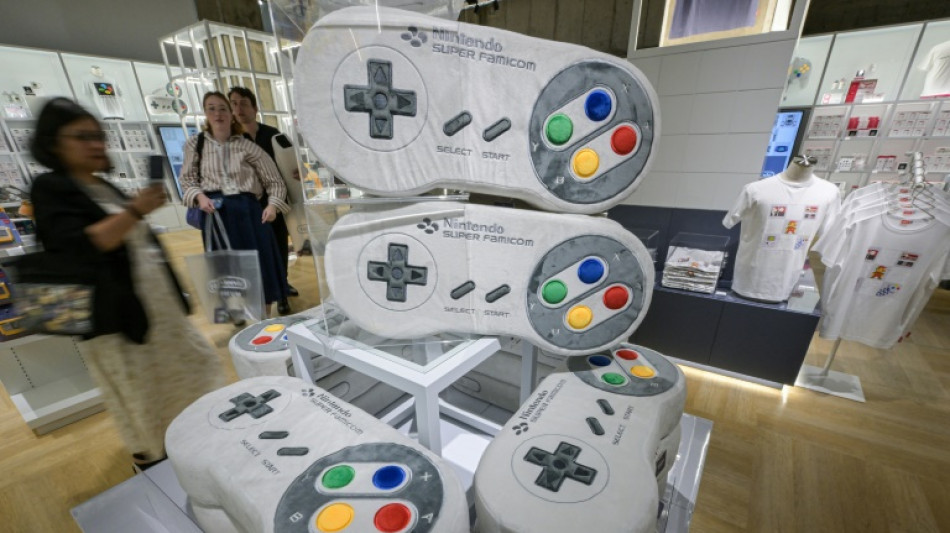
Cards to consoles: Nintendo opens first museum

Nintendo opened its first museum on Wednesday in a renovated factory in Kyoto, showcasing the long history of the Japanese video game giant from playing cards to "Super Mario".
The company began life in 1889 producing Japanese playing cards called "hanafuda" as well as Western-style ones. Nintendo launched its first home video-game machines in 1977.
Many exhibits at the museum in Kyoto's Uji city are interactive -- including an area where two people can play Mario and Donkey Kong games together on a giant console.
Other zones focus on Nintendo's vintage products. For example, there is a digital version of an ancient Japanese poetry game, and a workshop for fans to create their own hanafuda cards.
Tickets, priced at 3,300 yen ($22.60) for adults and less for children, are already sold out for October and November.
"Visitors can learn about Nintendo's commitment to manufacturing that places importance on play and originality," Shigeru Miyamoto, the renowned creator of "Super Mario" and other games said in a video in August.
The "Super Mario" games were launched in 1985, two years after the company began selling its classic Nintendo Entertainment System (NES) console.
The museum is part of efforts by Nintendo to broaden its brand exposure, including with a smash-hit animated movie last year featuring the Italian plumber and his colourful crew.
The company has also built a "Super Nintendo World" zone at the Universal Studios Japan theme park, featuring a Mario Kart ride with a real-life Bowser's Castle.
A similar area is set to open at the park's huge Orlando location next year.
Nintendo first announced plans for the museum in 2021.
Kansaku Namera, an analyst at Nomura Securities, told AFP that the museum fits into Nintendo's strategy as a place where "people can interact" with its gaming franchises.
Repurposing an old factory built in 1969, which was once used by Nintendo for producing playing cards and later repairing consoles, is also a canny move, he said.
"It's an effective reuse of assets" by Nintendo, Namera said.
M.Jacobucci--PV
